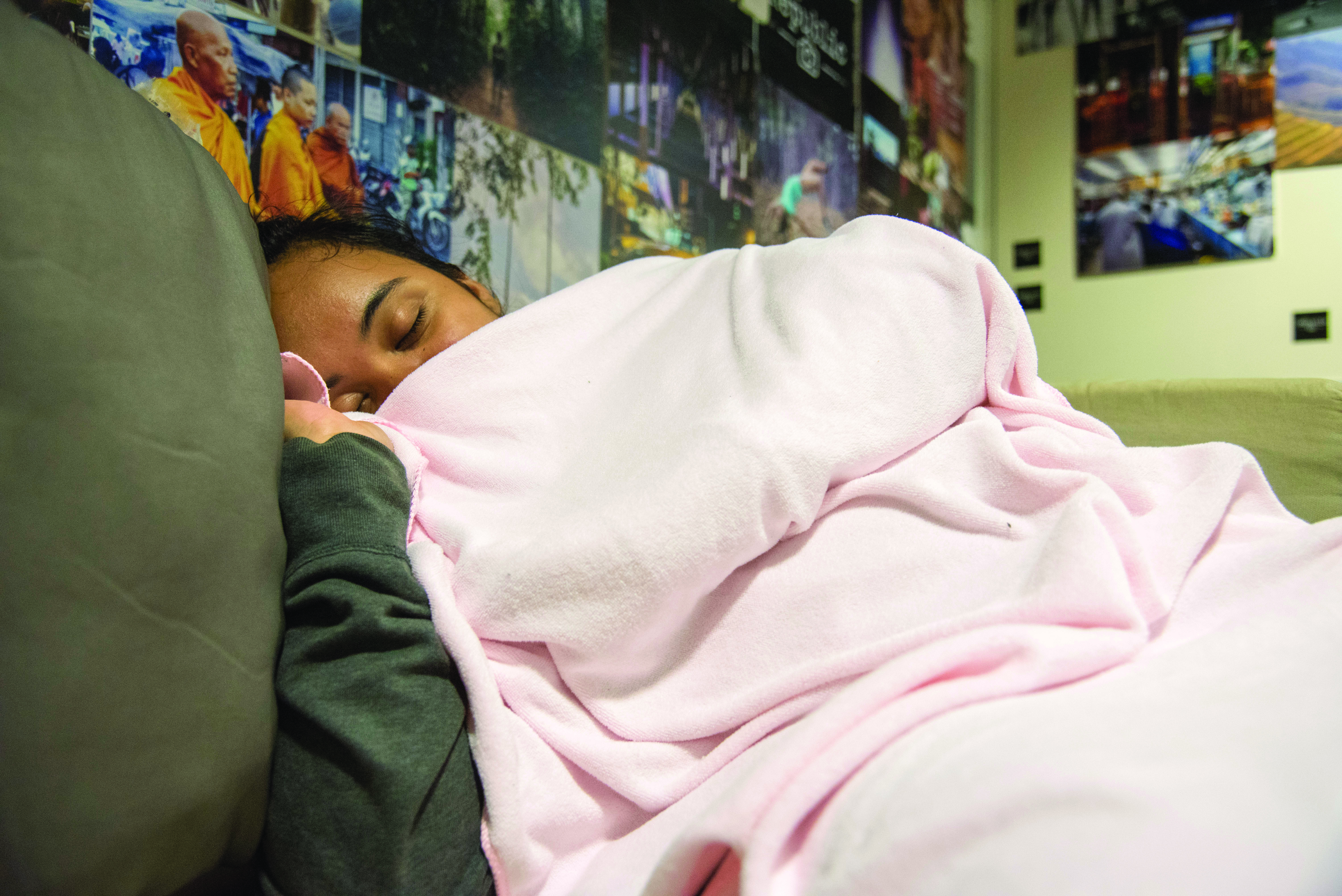
You may associate naps with laziness or an unhealthy lifestyle. But let’s get over that stigma. Naps can lead to better quality of work, health, memory, decision-making skills, creativity and alertness.
According to the National Sleep Foundation in the United States, the recommended hours of sleep for adults are seven to nine hours. Any lesser results in higher risk of suffering from Alzheimer’s Disease. Sleep is imperative in clearing metabolite ”junk” – a main culprit of Alzheimer’s – as explained by Professor Michael Chee, Director of Cognitive Neuroscience at the Duke-NUS Graduate Medical School, in a recent article in The Straits Times.
Some think that naps may not be necessary today due to the invention of caffeinated drinks. But Dr Sara C.Mednick, a sleep expert and author of Take a Nap! Change your life has said: “Caffeine can decrease memory performance. So you may feel more wired, but prone to making mistakes.”
Fionn Chay, 19, a second-year student in Pharmaceutical Science who takes two hours of nap occasionally, said: “The naps I take will help me re-energise my body for the next activity, but I seldom have the time to do so with the commitments I have in school.”
However, while a longer nap seems intuitively more beneficial, it is not always the case; it is important to take the right kind of nap at the right time.
THE POWER NAP
This 10-20 minute nap is ideal for those juggling hectic schedules. Power naps help to increase alertness and are also highly versatile. Be it during lunch or after school, scheduling a power nap is never difficult. This short nap also limits Non-Rapid Eye Movement Sleep, allowing continued function without feeling groggy upon waking.
THE EXTENDED POWER NAP
This 30-minute nap, in addition to the benefits provided by the power nap, aid in the recovery of immune and neuroendocrine systems. “A 30-minute nap can reverse the hormonal impact of a night of poor sleep,” said sleep expert Brice Faraut. However, the extended power nap may cause sleep inertia – the feeling of grogginess that takes up to 30 minutes to subside.
THE HOUR OF POWER
Also known as the slow-wave sleep, the 60-minute nap carries all aforementioned benefits while aiding cognitive processing; imperative for remembering facts and information. It would be ideal if you need to memorise an entire
textbook, but The Hour of Power may also result in sleep inertia.
THE FULL CYCLE
While it might be a challenge to take a complete nap in school or at work, there is no harm taking a full cycle nap during the weekends. These 90-to-120-minute naps help clear your mind, increasing creativity while boosting emotional and procedural memory. As these naps go through the cycle of waking up after Rapid Eye Movement Sleep, the sleep inertia experienced is significantly reduced.






